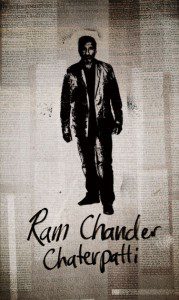Index relies entirely on the support of donors and readers to do its work.
Help us keep amplifying censored voices today.
Russian journalist Maxim Shaligin, a presenter on pro-government radio station Voice of Russia has been fired for criticising the outgoing president of South Ossetia.
Maxim Shalygin was sacked on 14 November, just ten minutes before his show was due to begin. He and his colleagues say he was discharged after speaking out against South Ossetia president Eduard Kokoity.
“Why do you let spin doctors with doubtful reputation rule the country and actually supervise presidential elections,” Maxim Shalygin appealed to Kokoity on the air. He expressed an opinion that Kokoity supported Kremlin favourite candidate Anatoly Bibilov,in the ongoing presidential election.
Voice of Russia head Andrey Bystritsky refuted the allegation of firing Shalygin because of the criticism he subjected Kokoity to. He told journalists Shalygin was a “freelancer who never could be discharged de jure”. Bystritsky added Shalygin was no longer employed by Voice of Russia because he suddenly stopped fulfilling “creative requirements”.
Alexey Simonov, head of Russian human rights organisation Glasnost Defense Foundation said he was upset by both sides: Bystrytsky and Shalygin.
“If Shalygin didn’t meet Voice of Russia’s conditions, he wouldn’t have had access to live broadcast. Still, Shalygin appealed to Kokoity in a tone characteristic of spin doctors rather than journalists,” Siminov said.
The first round of presidential elections was held in South Ossetia — the self-declared state in South Caucasus — on 13 November. The second round will be held on 27 November. The two main competitors are Anatoly Bibilov, whom political scientists consider pro-Kremlin, and local opposition leader Alla Jioyeva.
A scandal is flaring in Russia as two segments for popular NTV programme “Unreal Politics” were shot and then blocked by NTV’s management.
The first one subjected the leader of a pro-government youth movement Nashi and the chairman of State Committee for Youth Vasily Yakemenko to criticism. Russia’s own Paris Hilton, Kseniya Sobchak, told the Unreal Politics hosts about her attempts to interview Yakemenko in one of the most expensive restaurants in Moscow. Sobchak failed, but recorded her talk with Yakemenko and then published the interview in the Internet. The video contained her sarcastic comments of how Yakemenko’s supposed expensive tastes doesn’t correspond to his public statements about economy drive.
The second item concerned President Medvedev’s visit to the journalism department of Moscow State University in October. Several students, not satisfied with Medvedev’s policy, were arrested when they trief to hold a protest. The censored piece contained an interview with one of them — Vera Kichanova.
On 7 November Unreal Politics co-host Andrey Kolesnikov said the programme was shut after the two broadcasts had been blocked. “It was my decision, though the channel didn’t have much of a choice after all”, Kolesnikov told journalists. He stressed that the two blocked items were “not blocked, but were simply not acccepted by NTV from a production company”. NTV spokesperson Maria Bezborodova said the channel’s management blocked nothing, “having had no orders for these two items”. Both pieces are available on the web.
Neither Andrey Kolesnikov nor his co-host Tina Kandelaki are famous for their struggles for freedom of expression. Kolesnikov is a member of the Kremlin pool — a group of journalists accredited to cover president’s and top country’s officials activities. He is also the editor-in-chief in “Russian Pioneer” magazine, where he employed Vladimir Putin as a columnist. Kandelaki is the member of state Public Chamber. That is why it’s no surprise that neither of the co-hosts referred to the incident as censorship, agreeing that “the channel’s management if free to decide the programme’s fate”.
NTV, owned by state energy company Gazprom subsidiary, is notorious for its moves to censor programmes. In October a broadcast about kidnappings and tortures in Chechnya was banned by the channel’s management. In May the channel blocked an item about former oligarch and Putin’s opponent Mikhail Khodorkovsky’s cellmate and his assault to Khodorkovsky in prison. In 2004 journalist Leonid Parfenov was fired from NTV after he interviewed Chechen Republic of Ichkeria president’s widow Malika Yandarbieva.
Leah Borromeo says the 2012 games in London could damage free expression in the United Kingdon

A series of Home Office proposals could ban protests during the London 2012 Olympic games. In reaction to the longevity and scale of recent Occupy London takeovers of public and private space at St Paul’s Cathedral, Finsbury Square and a former UBS bank, ministers are reported to be drafting legislation loosely based on part 3 of the Police Reform and Social Responsibility Act 2011 – paying particular note to restricting tents and “sleeping equipment” for up to 90 days around exclusion zones. Police and “authorised officers” will be allowed to disperse protests quickly. Presumably with “reasonable force”.
Don’t be too shocked or too quick to compare this to Beijing 2008. Then, the Beijing Organising Committee banned all foreign visitors and non-Beijing-resident Chinese from attending, watching or applying for the right to demonstrate in authorised protest zones. Athens had protest zones in 2004. So did the Salt Lake City Winter Games in 2002.
The reasoning behind these restrictions is always to “preserve the festivity” of the Olympic experience. And security. Always security. In London’s case, security means Britain apparently waives its own rights and customs to allow America to oversee its own security operations, laying on 21,000 private security contractors and enforcing the London Olympic Games and Paralympic Games Act 2006.
That allows police and “enforcement officers” the right of entry to private buildings suspected of contravening legislation on Olympic advertising. This includes: “advertising of a non-commercial nature” and “announcements or notices of any kind” paying particular attention to “the distribution or provision of documents or articles, the display or projection of words, images, lights or sounds, and things done with or in relation to material which has or may have purposes or uses other than as an advertisement”. In other words, protest.
Artist Peter Kennard, noted for overtly political art in a public context says: “The Secretary of State has regulations banning ‘advertising in the vicinity of the Olympics’. How big is a vicinity? Words fail me and because I make public art in the ‘vicinity’ of the Olympics it might be safer for me if both words and images continue to fail me until after the Olympics”.
A London swamped with police, security officers and spy drones might just dampen all the fun. Providing you sing along with the hymn sheet laid on by the Games’ sponsors and ignore the £9.3 billion price tag, you’ll be fine. But if you argue that a corporate agenda and exploitation is being sold under the auspices of uniting the world under sport and “generating jobs”, you might be in trouble.
The proposed legislation and the laws already in place only serve to secure the profits made by those with heavy financial stakes in the Olympic Games. These corporations read like an anti-capitalist wet dream: McDonalds, Coca-Cola, Dow, G4S, BP…. They may bring jobs to an area, but totally undermine the community-building that encourages grass roots businesses and the local relationships and interactions that stem from that.
It’s interesting to note that the Home Office sees protest as a threat. They’re not only worried about homegrown “domestic extremists” with a grudge against capitalism but international groups seeking to use the Olympics as a platform to air their grievances about authoritarian regimes around the world. Syria, China and Bahrain spring quickly to mind. So instead of giving an example of a functioning democracy where everyone gets a voice and can practise free speech, Britain hides dissent in an attic like it’s an invalid child.
The idea that ministers are considering bans on protest off the back of a global Occupy movement further legitimises the idea that these restrictions are directed at those who oppose one of the greatest and most murderous regimes of the world…capitalism.
So here we go. I hate the Olympics. Arrest me.
 MURDERED 21 NOVEMBER 2002
MURDERED 21 NOVEMBER 2002
Ram Chander Chaterpatti, Editor, “Poora Sach” — New Delhi, India
Join us in demanding justice for Ram Chander Chaterpatti. Chaterpatti, 52, editor of the Hindi-language newspaper Poora Sach, died in a New Delhi hospital of injuries sustained in an assassination attempt made a month earlier. He was gunned down outside his home in Sirsa on 24 October 2002, allegedly by members of the religious sect Dera Sacha Sauda. Officials said that sect members are believed to have ordered Chaterpatti’s murder in reprisal for the journalist’s reporting on sexual abuse and other crimes allegedly committed at the group’s compound in Sirsa. Several journalists in the area said they had received death threats for reporting on the sect’s activities.
Police arrested three suspects, including the alleged gunman and a leader of Dera Sacha Sauda. But to this day, the case remains unsolved.
International Day to End Impunity is on 23 November. Until that date, we will reveal a story each day of a journalist, writer or free expression advocate who was killed in the line of duty.